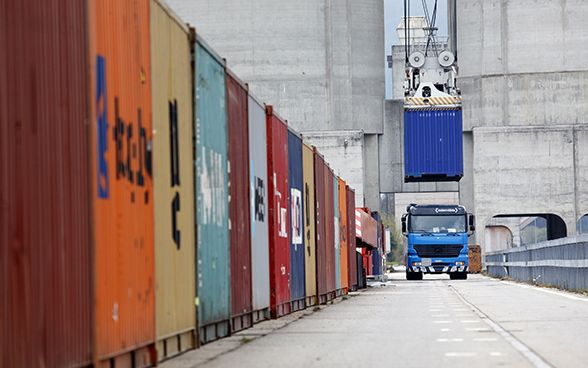Switzerland operates 73 regional trade agreements (RTAs) with 73 economies, according to a World Trade Organization (WTO) report.
Other trade agreements include: its customs union with Liechtenstein; its bilateral agreements with the European Union, and its participation in the European Free Trade Association (EFTA) with Liechtenstein, Iceland and Norway.
In addition, Switzerland has EFTA agreements with 39 economies; and Switzerland’s bilateral RTAs with the Faroe Islands, Japan, China and the United Kingdom.
Switzerland selects its potential RTA partners based on the following four criteria:
- Its current and potential economic importance.
- The degree of actual or potential discrimination resulting from RTAs between a potential partner and Switzerland’s main competitors.
- The willingness of potential partners to engage in negotiations and the corresponding prospects for success.
- Other considerations, for example how an RTA would contribute to the economic stabilization and development of a potential partner or its compatibility with Switzerland’s foreign policy objectives.
Trade agreements
The State Secretariat for Economic Affairs (SECO) recently commissioned a study to assess the extent to which Swiss companies apply the tariff preferences available through RTAs (both with respect to their imports and exports).
Overall, in 2018, free trade agreements (FTAs) saved Swiss importers CHF 2.5 billion in customs duties (corresponding to an average utilization rate of 73% for imports).
As for exports, the utilization rate was 80% in 2018, representing savings of CHF 1.8 billion in customs duties.
A tracking system has been established for each trading partner with data for 2019.
A second study commissioned by SECO examined, in greater detail, the duty savings enjoyed by different categories of importers.
It was found that both SMEs and large companies benefited equally from FTAs during the 2016-2019 period, saving 87% and 86% on duties, respectively, compared to the duties they would have paid without FTAs.
The average savings in duties for all categories of importers was 84% in the same period.
Based on these results, SECO carried out a survey of importing companies to find out why some Swiss companies did not use RTAs. According to reports, the main reason was that companies were not sufficiently informed about the conditions they had to meet to benefit from FTAs.
Compliance with rules of origin also seemed to represent an important factor. The authorities indicate that SECO is continuing to analyze responses to this questionnaire to determine whether additional work can help promote greater use of Swiss FTAs by companies.
![]()

